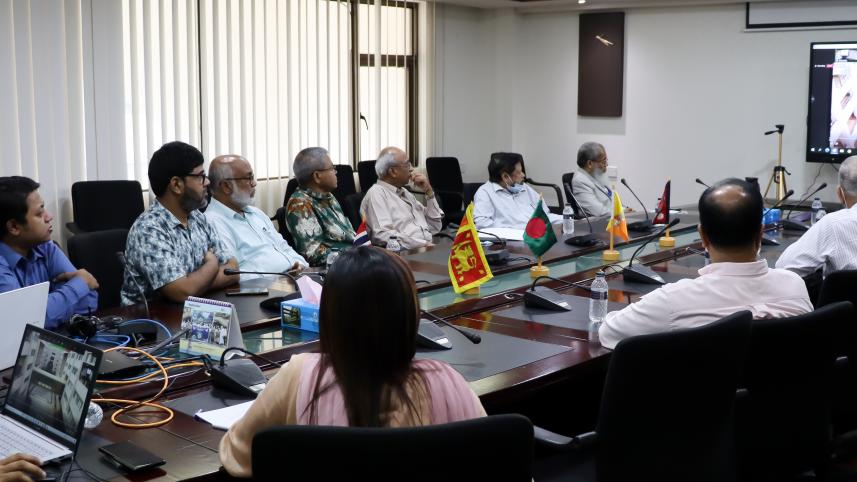NSU holds webinar on ‘Dr Akbar Ali Khan: Contribution to Bangladesh State and Society’

A webinar on "Dr Akbar Ali Khan: Contribution to Bangladesh State and Society" was organised by the South Asian Institute of Policy and Governance (SIPG) and South Asian Network for Public Administration (SANPA) on October 3 at NSU.
Dr Akbar Ali Khan was an influential academic, researcher, active and objective public intellectual and renowned bureaucrat, reaching the position of cabinet secretary in Bangladesh. He successfully combined multiple roles in his career -- academia, research, and national and international bureaucracies. He passed away on September 8.
This webinar was organised to commemorate and discuss his contribution to the state and society.
The panelists at the event were: Abdul Muyeed Chowdhury, former advisor, caretaker government; Md Aminul Islam Bhuiyan, former secretary, economic relations division, finance division; Dr Mohammad Tareque, director, Bangladesh Institute of Governance & Management (BIGM) and former finance secretary, and Dr Debapriya Bhattacharya, distinguished fellow, Centre for Policy Dialogue (CPD).
Prof Salahuddin M Aminuzzaman, advisor, SIPG, NSU, moderated the event.
Academics, researchers, practitioners, civil servants, journalists, and students from both Bangladesh and abroad participated in the webinar.
Abdul Muyeed stated that Dr Khan was his classmate in the History department of Dhaka University and from his student days he was studious and indicated his thirst for knowledge. He was a quintessential bureaucrat as a civil servant but used to take a stand on issues in the greater interest of the state and governance.
Possibly, he will be remembered more for his contribution to the state and society after his retirement from service, he added.
Aminul Islam, a junior colleague of Dr Akbar Ali Khan, recalled how Dr Khan contributed to the consciousness of Bangladesh statehood through his seminal work -- Discovery of Bangladesh.
During his service life, he was involved in truly groundbreaking research work, which put a spotlight on the lacunae of public sector management.
Moreover, Dr Khan later delved into issues of lacking governance and bureaucracy through his books -- Friendly Fires, Humpty Dumpty Disorders, and Gresham's Law Syndrome and Beyond: An Analysis of the Bangladesh Bureaucracy, he said.
He remarked that Dr Khan was truly a social philosopher as his interest in knowledge ranged across many disciplines and will be remembered for his writings on various issues ranging from Rabindranath to governance.
Debapriya Bhattacharya highlighted the achievements of Dr Khan as a freedom fighter, civil servant, writer, and economic thinker.
He remarked that Dr Khan was also a development fighter and a policy shaper whose contributions and stand on ethical issues should inspire present and future civil servants. While remaining within the conventional economic thinking, he was also critically constructive.
During the open discussions, M Musharraf Hossain Bhuiyan, former cabinet secretary, pointed out that contrary to the popular belief that bureaucrats do not need to be scholars, Dr Khan proved that scholar-bureaucrats are essential and as such he will remain as a model for public servants.
Dr Habib Zafarullah, founding chair, SANPA, said he is the pioneer of regulatory governance in Bangladesh. His resignation from the caretaker government was a brave step. His post-retirement years were productive as he wrote eloquently. He is an epitome of a perfect "pracademic".
Former additional secretary Aftab Uddin Ahmed also spoke.
The webinar started with a video presentation on SIPG and concluded with a vote of thanks by Dr Mohammad Mizanur Rahman, secretary general, SANPA, and deputy secretary, planning commission, ministry of planning.
 For all latest news, follow The Daily Star's Google News channel.
For all latest news, follow The Daily Star's Google News channel.
Comments